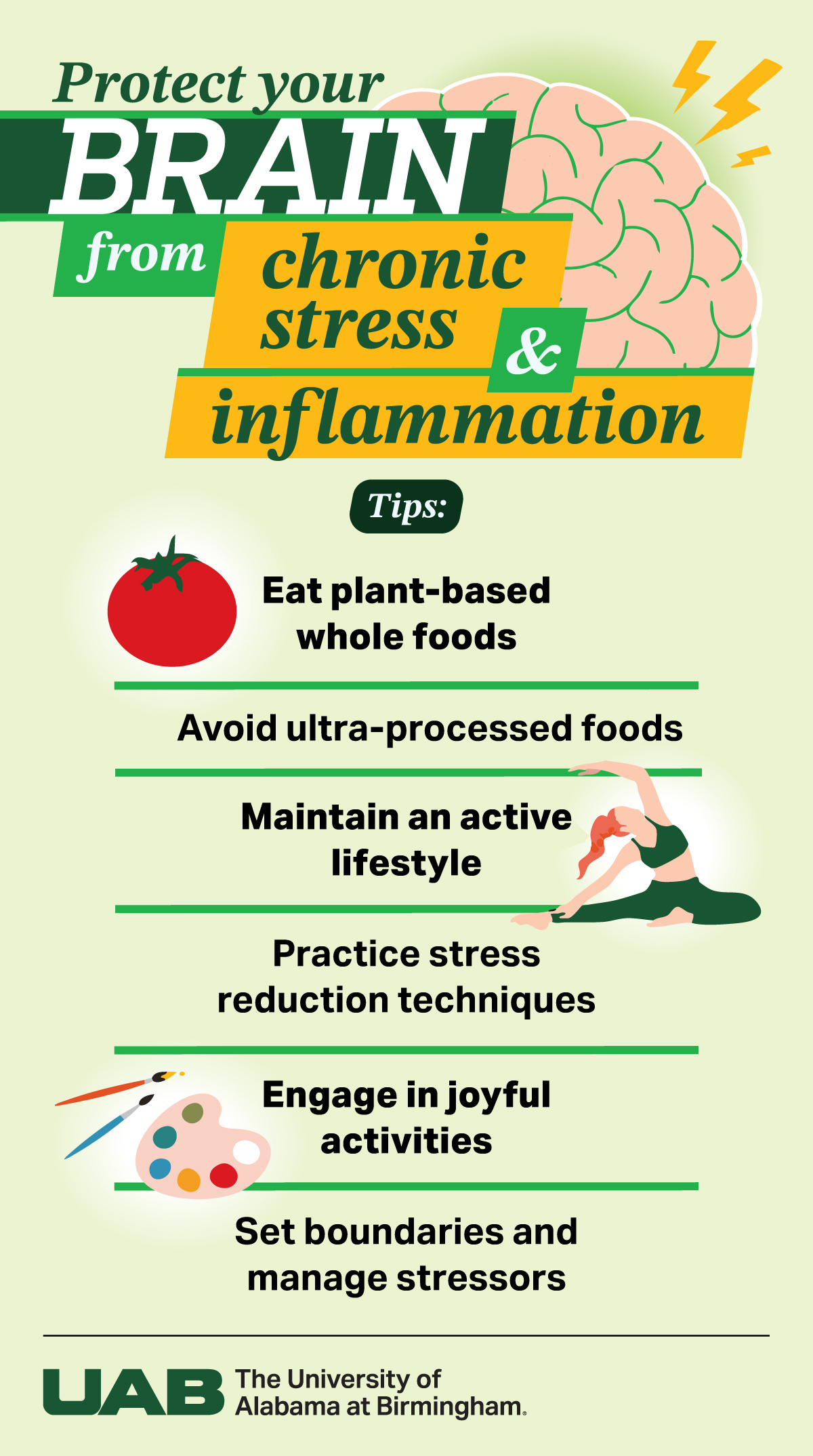 Chronic stress arises when a persistent stressor lingers for an extended period with few opportunities for resolution.Stress is a natural part of life, and short-term stress can be helpful for cognition. But when does stress shift from a temporary challenge to a long-term burden on our bodies, specifically as it concerns brain health?
Chronic stress arises when a persistent stressor lingers for an extended period with few opportunities for resolution.Stress is a natural part of life, and short-term stress can be helpful for cognition. But when does stress shift from a temporary challenge to a long-term burden on our bodies, specifically as it concerns brain health?
Amy Knight, Ph.D., associate professor in the University of Alabama at Birmingham Department of Neurology, discusses why and how chronic stress can affect one’s brain and overall health.
What is chronic stress?
The key differences between “normal” stress and chronic stress lie in duration and intensity. Acute stress is typically short-term, triggered by a specific event or situation. It causes a temporary reaction that subsides once the stressor is resolved, allowing the body to recover and return to a balanced state.
Chronic stress arises when a persistent stressor lingers for an extended period with few opportunities for resolution. This can stem from financial hardship, work-related issues, relationship conflicts or medical conditions, Knight says.
 How does chronic stress rewire the brain?
How does chronic stress rewire the brain?
In a stressful situation, the brain reacts as if there were a physical attack on the body and activates the “fight or flight” response. This ancient survival mechanism triggers physiological changes in the body through the release of stress hormones, cortisol and adrenaline. Inflammation arises when stress hormones encourage pro-inflammatory cytokines, leading to an overactive immune response.
“In a normal brain, inflammation may occur in reaction to a viral infection or pathogen exposure or to aid in recovery after tissue damage from a traumatic brain injury,” Knight said. “Acute inflammation typically resolves over time, but it may persist for various reasons. Stress, especially chronic stress, can slow down the recovery process.”
How does this affect you?
Sleep: A stressed brain has a hard time calming down. This often results in insufficient sleep, which affects one’s attention and distractibility.
Memory: “Brain fog” is common as chronic stress can lead to forgetfulness and difficulty concentrating.
Emotions and decision-making: Inflammation can alter hormones and neurotransmitters, which can lead to mood swings. One may also experience increased anxiety, irritability, or feeling down and depressed.
Neurodegenerative diseases: Over time, chronic stress is thought to contribute to a faster breakdown of brain function, essentially speeding up the aging process and leading to an earlier onset of cognitive decline, Alzheimer’s and Parkinson’s disease.
While chronic stress can have numerous impacts on one’s body, Knight reiterates that there are practical, everyday tips one can follow to protect their brain and their body.
“Making healthy choices, such as prioritizing sleep, maintaining proper nutrition, staying active and fostering joy, can help build a more resilient brain, ultimately reducing persistent inflammation,” Knight said.
Learn more about these tips here.